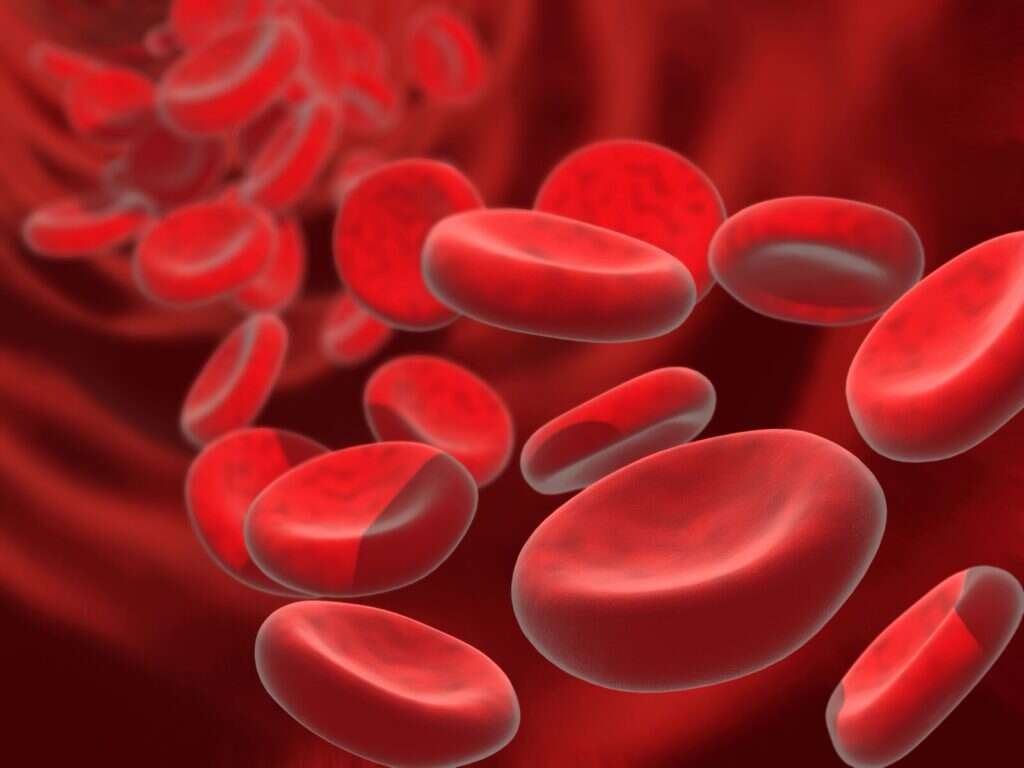10 Wilson's Disease Symptoms
Copper is a very important metal for the body. It is similar to iron in that it helps the body to make red blood cells which are, of course, essential for carrying oxygen and nutrients around the body.
It is important to have copper in the body, but some people have a condition that causes too much copper to be found in the system. Wilson’s disease is a condition that causes excess copper to build up in the body. It is a genetic condition and the brain and the liver are most affected. It causes a range of unwanted symptoms and is something that should be taken seriously. It can be treated, but it is important that it is caught as soon as possible.

Symptom #1: Increased Bleeding
Our blood is very important to us. Without it, we would die, so it is essential that it stays circulating through our blood vessels where it is needed. It is usually quite safe in the blood vessels and even if the vessels are cut open the blood will clot quickly to help prevent loss of blood.
In cases of Wilson’s disease in the liver, the patient can see an increased amount of bleeding. This is obviously potentially very hazardous and will need to be treated as a potentially serious condition. Anybody with the condition will need to take extra care not to damage themselves in any way.

Symptom #2: Fatigue
We all get tired from time to time, nobody is able to just keep on going forever without having a break. It is not usually a permanent problem, though, and sometimes all that is needed is some rest and plenty to eat and drink. Sometimes, a longer break than usual might be necessary but it should still do the trick.
If you are ill, though, then your body will be fighting a continual battle against whatever it is that is making you sick. The relentless battle makes us feel very fatigued and food and sleep are not likely to make it go away. It is still important to eat and sleep, though, because this will help give the body what it needs to keep fighting.

Symptom #3: Jaundice
We are often able to tell at a glance that somebody is unwell. The color of the skin, in particular, can be a dead giveaway and can even be used to diagnose specific problems. If the skin and/or eyes appear yellow, though, then it is a clear indicator that you have jaundice.
Jaundice is a condition that tells us that there is a problem with the liver. It is caused by the presence of more bilirubin than usual. This is a waste product of the body that is usually broken down by the liver. With the liver not functioning as it should, so there is more bilirubin than usual and its yellow tinge is what gives jaundice its color.

Symptom #4: Depression
In the past, depression has been much misunderstood. Patients would often be accused of being miserable and that they should just cheer up if they have nothing to be down about. What we have learned though is that depression is a medical condition that can affect anybody. We also know that it can be caused by various illnesses.
If excess copper has built up in the brain, the patient may well begin to experience depression. It is a condition that should be taken seriously as it is responsible for taking the lives of people all over the world. Doctors are likely to try and treat the depression as well as the cause.

Symptom #5: Aggression
The brain is a very complicated organ and if something is wrong with it, then it can affect us in some very profound ways. The brain is mostly responsible for who we are, for our personalities and general outlook in life. If our brain is affected in some ways, it can change who we are.
People with Wilson’s disease of the brain can find that they become uncharacteristically aggressive toward other people. It can make them difficult to work with, but it is not their fault that they are acting in this way. It can also cause some very unsociable and inappropriate behavior from patients with the illness.

Symptom #6: Anxiety
Feeling anxious is in itself a natural and healthy thing. Without it, we may not have a heightened sense of alertness that helps us to get things done when needed. Sometimes, though, anxiety can occur even when there is no apparent reason for the patient to feel anxious. In some cases, it can be absolutely debilitating.
Wilson’s disease of the brain can have the effect of causing anxiety in patients. This can make them feel uncomfortable even in completely benign situations. In severe cases, it can leave them unable to leave the home and even afraid to speak with other people at all.

Symptom #7: Abdomen Pain and Swelling
It is not uncommon for us to experience abdomen pain. Just eating the wrong type of food can sometimes be enough to have us curled up in agony. It is not usually something to be concerned about and will usually pass harmlessly in time. If it persists, though, then it could be an indicator that something is quite wrong.
Patients with Wilson’s disease of the liver are likely to find considerable ongoing stomach pain. They can also find that their abdomen becomes unusually swollen. The patient might also experience the vomiting of blood, which is a sure sign that they need medical assistance.

Symptom #8: Difficulty Speaking and Swallowing
Our brains are responsible for pretty much all of our actions. It is so capable that we are even able to perform impressive tasks without having to think about them. We even tend to take complex speech for granted, despite it requiring an astonishing degree of coordination between the brain and speech muscles.
If our brains are ill, though, then we can begin to struggle to do the things we once took for granted. One symptom of Wilson’s disease of the brain is that the patient can find it difficult to speak clearly and also to swallow. Any similar symptoms should be enough to encourage you to seek medical assistance if you have not already.

Symptom #9: Difficulty Balancing
Whenever we make a movement, numerous muscles are working in coordination with each other to help us perform the action. This is an impressive feat, especially when we are walking, running and jumping because the balance required is something that even our latest technology struggles to replicate.
It takes us years to learn to walk and balance, but when it is learned it is something that we don’t usually think about. Wilson’s disease can affect the brain, however, in a way that causes us to begin to lose these abilities. It can cause the patient to become increasingly dependent on other people for help.

Symptom #10: Tremors
When we move, it is as a result of messages that have come from the brain telling the muscles to contract. This is often done subconsciously, although it can also be done by our direct thoughts. If there is a problem with the brain, though, then these messages can begin to get confused.
A fairly common symptom among patients with Wilson’s disease in the brain is tremors. They occur because of messages from the brain telling the muscles to contract in quick succession. Patients can also find that they experience a stiffness of the muscles alongside tremors. Tremors can be the result of a range of causes and you should seek medical advice if they occur.











